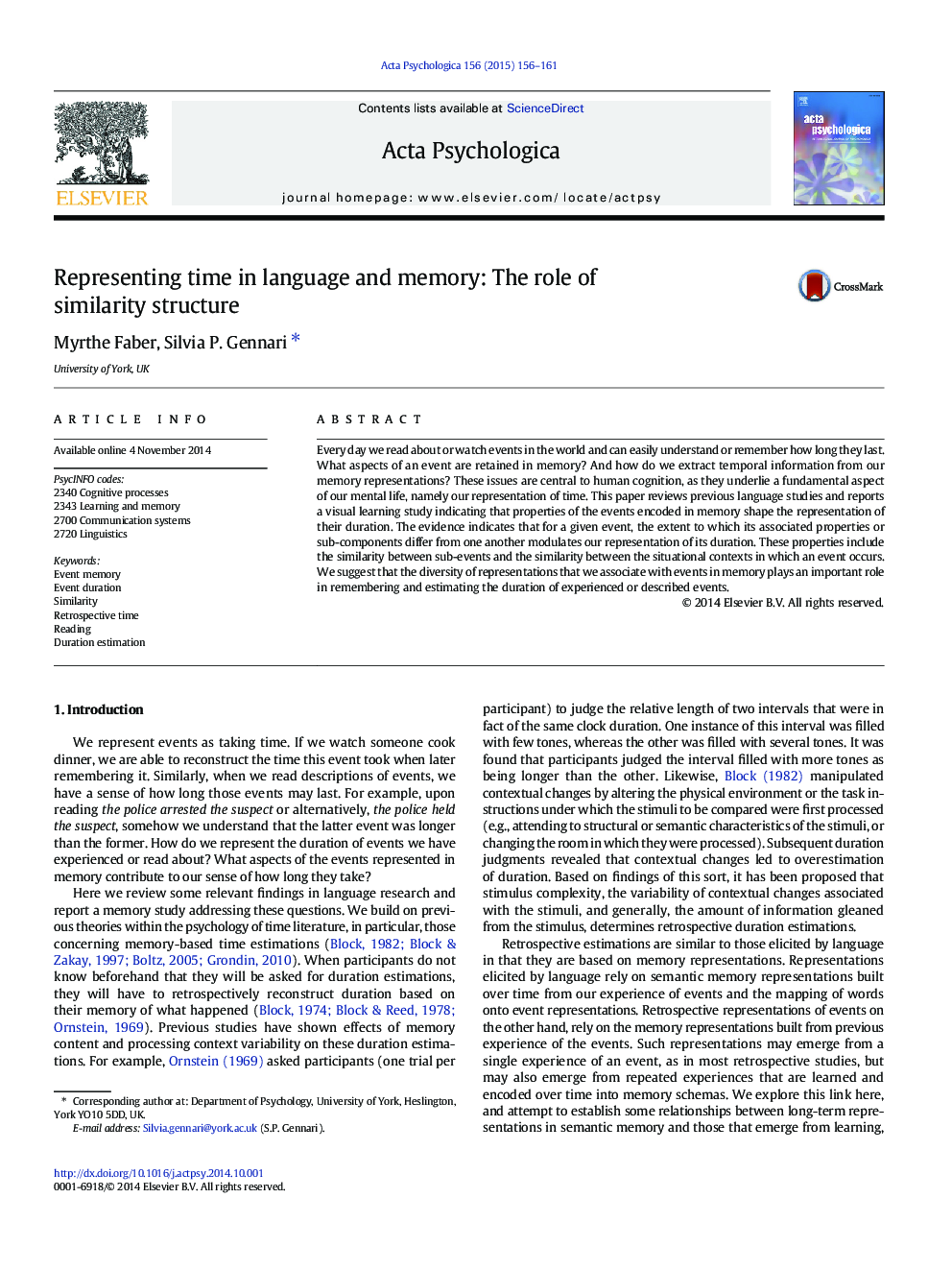| Article ID | Journal | Published Year | Pages | File Type |
|---|---|---|---|---|
| 7277504 | Acta Psychologica | 2015 | 6 Pages |
Abstract
Every day we read about or watch events in the world and can easily understand or remember how long they last. What aspects of an event are retained in memory? And how do we extract temporal information from our memory representations? These issues are central to human cognition, as they underlie a fundamental aspect of our mental life, namely our representation of time. This paper reviews previous language studies and reports a visual learning study indicating that properties of the events encoded in memory shape the representation of their duration. The evidence indicates that for a given event, the extent to which its associated properties or sub-components differ from one another modulates our representation of its duration. These properties include the similarity between sub-events and the similarity between the situational contexts in which an event occurs. We suggest that the diversity of representations that we associate with events in memory plays an important role in remembering and estimating the duration of experienced or described events.
Keywords
Related Topics
Life Sciences
Neuroscience
Cognitive Neuroscience
Authors
Myrthe Faber, Silvia P. Gennari,
